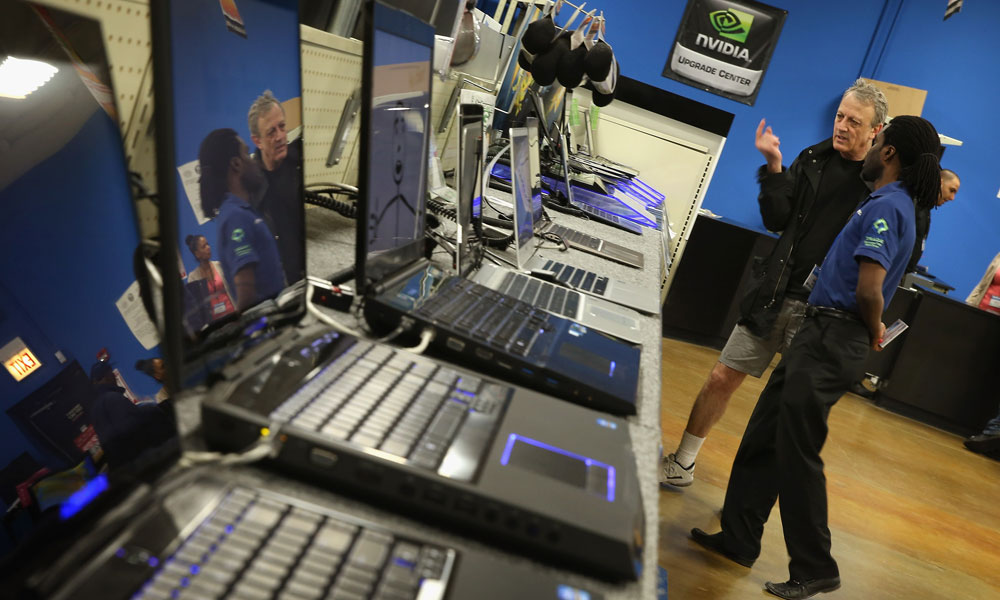
Lunchtime Links: The PC Industry’s Bad Year
According to two separate market analysts, personal computer sales lost a lot of ground in 2013. Also: How to supercharge your productivity with tags.
According to two separate market analysts, personal computer sales lost a lot of ground in 2013. Also: how to supercharge your productivity with tags.
With all the talk about mobile devices and tablets in recent years, the personal computer—that old office standby—has been left in the mind-share dust.
And according to some recent numbers, the PC industry had anything but an easy 2013. The nitty-gritty in today’s Lunchtime Links:
The PC’s steep decline: Perhaps it’s not a big surprise, but it’s certainly a trend worth watching: PC sales took a big nosedive in 2013, according to the latest numbers from the technology research firms IDC and Gartner. Both say that PC sales worldwide were down by roughly 10 percent last year, with Gartner going so far as to call it “the worst decline in PC market history.” IDC’s Loren Loverde, meanwhile, put it this way: “The PC market again came in very close to expectations, but unfortunately failed to significantly change the trajectory of growth.” With tablets and Chromebooks making an impact on the enterprise space, is the PC is becoming less essential? Hardly—a 10 percent decline still means about 82 million units were shipped worldwide last year, according to both estimates.
Sort out your tags: Seemingly every productivity app has them: tags that allow you to better organize the things that matter in your life. But are you using them all wrong? You might be, according to LifeHacker‘s Thorin Klosowski, who recently had a light bulb go on in his head regarding tagging systems. “I have a mess of files, tags, and various systems that don’t make any sense or organize my ideas at all,” he writes. “I always thought I was doing it wrong, and only recently have I realized that there isn’t a wrong way to do it. Finally, tags clicked in my head, and I’ve started using them to actually organize my mess of ideas.” The keys, he explains, are creating a system before you start, sticking to it, and remembering that you don’t have to tag everything. Check out what Klosowski says worked for him.
The problem with basic sessions: Sometimes, it’s tricky to get the rookies attending an event to understand that learning the basics is necessary. Consultant David M. Patt of Association Executive Management says that they’ll likely find the more advanced sessions more appealing, even if they’re missing a few steps along the way. The issue might be the nomenclature, Patt says. “So, if you think it’s really important for less experienced members to learn the basics before they sit in on more advanced sessions,” he writes, “find a way to make them think it’s really important. And don’t call those sessions ‘beginning’ or ‘basic’ or ‘foundations’ or ‘boot camp.'”
Any advice for attracting more interest in starter educational tracks? Offer up your take in the comments.
(photo by Scott Olson/Getty Images)






Comments